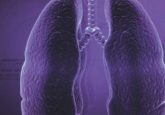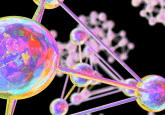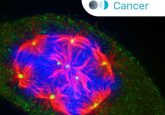Capivasertib may be an effective treatment for patients with tumors with AKT mutations

In a recent Phase II trial researchers have discovered that capivasertib, an AKT inhibitor, may be an effective treatment for tumors with the AKT mutation. This research was carried out as part of a larger study taking place in the USA (NCI-MATCH) investigating molecular profiling of tumors and personalized treatments based upon specific genetic mutations rather than the traditional approach of treating cancer based on type.
The drug had previously demonstrated potential efficacy in treating aggressive breast cancer, however, these results indicate that it may be effective at reducing a variety of cancers.
The AKT mutation is present in several different types of cancer; however, it is overall uncommon, appearing in 1.3% of patients tested as part of the NCI-MATCH trial. Only patients with the AKT mutation in the cells of their tumor were selected for this trial. All 35 individuals had metastatic cancer and the majority had received two or three previous treatments.
In confirmed responses to the drug, tumor size reduction was observed in 23% of participants, no change in tumor size in 46% of participants and an increase in tumor size in 9% of participants. The researchers estimate that 52% of the patients were alive and had experienced no tumor growth after 6 months.
Kevin Kalinsky (New York Presbyterian-Columbia University Irving Medical Centre, NY, USA) presented the research at the 30th EORTC-NCI-AACR Symposium on Molecular Targets and Cancer Therapeutics (13–16 November, Dublin, Ireland). He explained: “This study is a limited but important piece of evidence. More trials are needed to learn the benefit in each tumor type and to understand why some patients did not have a response while others had a prolonged time without tumor growth.”
Charles Swanton (Francis Crick Institute, London, UK) commented: “This study is a small but important piece of evidence and it’s part of a larger study that will help us move towards more personalized cancer treatments. This trial approach is particularly important for those with rarer cancers where we know less about which treatments are most effective and conducting patient trials is difficult.”
Source: AZD5363 in patients with tumours with AKT mutations: NCI-MATCH subprotocol EAY131-Y, a trial of the ECOG-ACRIN Cancer Research Group (EAY131-Y), presented at 30th EORTC-NCI-AACR Symposium on Molecular Targets and Cancer Therapeutics, Dublin, Ireland, 13–16 November 2018





